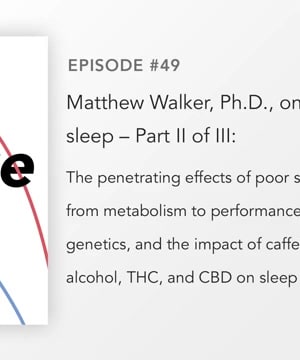Sleep deficit
Sources:
Sleep deficit, or sleep deprivation, has numerous detrimental effects on both physical and mental health, as shared by several experts in various podcasts.
-
Emotional and Cognitive Impact: Dr. Austin Perlmutter emphasizes that sleep acts as an emotional reset for the brain, helping to lower emotional reactivity and improve decision-making. Lack of sleep leads to poorer decision-making, reduced focus, and increased risk of mental health disorders like major depression 1.
-
Physical Health Consequences: Chronic sleep deprivation is linked to severe health issues such as cardiovascular diseases, diabetes, Alzheimer's disease, and even cancer, according to Dr. Chris Winter 2. It also impairs metabolic function, leading to weight gain and other metabolic disorders 3.
-
Productivity and Creativity: Matthew Walker notes that sleep-deprived individuals tend to select less challenging tasks, produce fewer creative solutions, and exhibit unethical behaviors due to impulsivity. This affects not only individual performance but also team dynamics and leadership effectiveness 3 4.
-
Attention and Safety: Sleep deprivation significantly affects attention and focus, increasing vulnerability to distractions and technology designed to capture our focus. It also leads to dangerous behavior like drowsy driving, which is a leading cause of road accidents 5.
-
Sleep Debt: James Fodor explains that sleep debt accumulates over time, worsening cognitive performance, health, and mood. The severity of sleep deprivation can be gauged through the sleep onset latency test, indicating higher levels of sleep debt with quicker onset of sleep in a controlled setting 6.
Overall, ensuring sufficient sleep is crucial for maintaining overall well-being and optimal functioning in daily life.
RELATED QUESTIONS-
